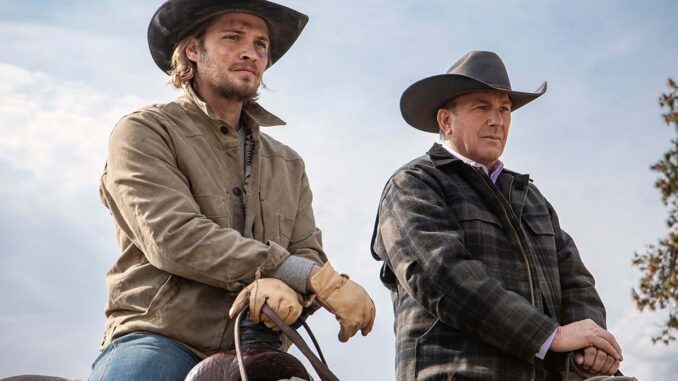
The Fading Roar: Why Yellowstone’s Final Episodes Feel Different
Yellowstone, the neo-Western saga that captivated audiences with its sweeping vistas and gritty family drama, has become a cultural phenomenon. Yet, as the Dutton empire approaches its twilight, a persistent murmur has grown among its devoted fanbase: something feels different. It’s not simply the anticipation of closure; it’s a tangible shift in tone, pacing, and character development that leaves many viewers feeling adrift in the familiar Montana landscape. While success and longevity inevitably bring change, understanding why these final episodes feel “different” requires examining several key factors.
One significant reason for the perceived shift lies in the fragmentation of the narrative. In the early seasons, Yellowstone thrived on its tight-knit focus. The Dutton family, facing threats both external and internal, were a cohesive, if dysfunctional, unit. The overarching conflict of protecting their land bound them together, creating a compelling tension that propelled the story forward. In recent episodes, however, the narrative has sprawled into increasingly disparate storylines. Beth’s corporate battles feel isolated from Kayce’s spiritual journey, while Jamie’s political maneuvering often unfolds in a vacuum. The interconnectedness that defined the series has frayed, leaving viewers feeling like they’re watching several distinct shows rather than one cohesive narrative. This fragmentation weakens the emotional impact, diluting the stakes and diminishing the sense of urgency that once permeated every scene.
Furthermore, the pacing has undergone a noticeable transformation. Earlier seasons masterfully balanced dramatic confrontations with quieter moments of reflection, allowing the audience to breathe amidst the chaos. Character development was gradual, unfolding organically through subtle interactions and revealing glimpses into their complex pasts. The final episodes, however, often feel rushed and plot-driven. Complex storylines are compressed into single episodes, leaving little room for nuance or emotional resonance. Character arcs, once meticulously crafted, now seem truncated and forced, driven by plot expediency rather than authentic growth. This accelerated pacing sacrifices the series’ trademark atmospheric tension, leaving viewers feeling like they’re running to catch up rather than savoring the journey.
Another crucial factor contributing to the perceived difference is the shift in character dynamics. John Dutton, the stoic patriarch who once defined the show’s moral compass, now seems increasingly disconnected and reactive. His leadership, once decisive and unwavering, feels hesitant and often misdirected. Beth, the fiery and fiercely loyal daughter, has become caricatured in her ruthlessness, often resorting to shock value rather than genuine emotional depth. Even Kayce, the honorable and conflicted son, appears to be trapped in a cycle of predictable moral dilemmas. While characters inevitably evolve, the transformations in Yellowstone’s final episodes often feel exaggerated and inconsistent with their established personalities. This departure from familiar character traits weakens the emotional connection with the audience, making it difficult to fully invest in their struggles.
Finally, the absence, or rather, the felt absence of certain creative voices, notably the show’s creator, Taylor Sheridan, cannot be ignored. While Sheridan’s name remains on the credits, whispers of shifting priorities and competing projects have led some fans to speculate about a dilution of his creative influence. Whether due to scheduling conflicts or creative disagreements, the absence of his distinct touch is palpable. The dialogue feels less sharp, the pacing less deliberate, and the overarching thematic vision less clear. This perceived shift in creative direction may be subtle, but it undoubtedly contributes to the overall feeling that something has fundamentally changed.
In conclusion, the perception that the final episodes of Yellowstone feel different stems from a complex interplay of factors. The fragmentation of the narrative, the accelerated pacing, the altered character dynamics, and the potential shift in creative influence all contribute to a sense of disconnect from the series’ original magic. While the Dutton saga is nearing its conclusion, these changes raise questions about the enduring legacy of Yellowstone and whether its final chapter will ultimately live up to the high standards it initially established. The fading roar of the Dutton empire leaves many fans hoping for a powerful crescendo, one that honors the complex characters and breathtaking landscapes that made Yellowstone a phenomenon in the first place.
